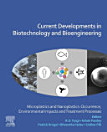Decentralized Sanitation and Water Treatment: Treatment in Cold Environments and Techno-Economic Aspects
About this ebook
Key Features
- Reviews the current status, challenges, and future perspectives of decentralized water treatments
- Discusses decentralized sanitation, water, and wastewater treatment in cold environments and Northern countries
- Focuses on interdisciplinary approaches of sustainability and circular economy
- Covers life cycle and environment assessment of decentralized sanitation systems
- Reviews the environmental, techno-economic, and social aspects of decentralized sanitation systems
The book is meant for professionals and researchers working on wastewater treatment, environmental engineering, and ecology.
About the author
Professor R. D. Tyagi is an internationally recognized Professor of Biochemical Engineering and Chief Scientific Officer of BOSK Bioproducts. He has served as Professor for 36 years and Senior Canada Research Chair on Value Added Products from Wastes for 18 years at the University of Quebec, Canada. His research on bioconversion and bioprocessing to bioproducts and activity of transfer of technology to the user’s sector has received many National and International Awards.
Professor Ashok Pandey is currently Distinguished Scientist at the Centre for Innovation and Translational Research, CSIR-Indian Institute of Toxicology Research, Lucknow, India and Distinguished Professor, Sustainability Cluster, University of Petroleum and Energy, Dehradun, India. His major research and technological development interests are industrial & environmental biotechnology and energy biosciences, focusing on biomass to biofuels & chemicals, waste to wealth & energy, etc.
Professor Patrick Drogui is Professor at the Institut national de la recherche scientifique’s Centre Eau Terre Environnement in Canada. He is an internationally recognized expert in electrochemical and membrane technologies, and oxidative processes for different applications in water treatment from industrial wastewater to potable water.
Dr Bhoomika Yadav completed her PhD from Institut national de la recherche scientifique’s Centre Eau Terre Environnement. She has strong research skills and works in multidisciplinary areas of biotechnology, microbiology and biochemical engineering. Her research interest includes waste to value transformation, bioflocculants, wastewater treatment, bioplastics and circular bioeconomy.
Dr Sridhar Pilli is an Assistant Professor at the National Institute of Technology Warangal, India. He is an expert in Water and Wastewater Treatment, Anaerobic Digestion, and Waste to Energy.
Professor Jonathan WC Wong is Distinguish Professor of the Research Center for Eco-environmental Engineering, Dongguan University of Technology, China. Formerly, he was Professor in Hong Kong Baptist University, Hong Kong. His major research interests are on bioconversion of organic wastes for energy and bioproducts.





